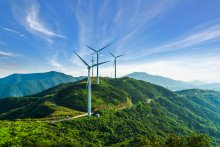






On February 4, 2025, President Donald Trump signed a series of executive orders, including one titled 'Unleashing American Energy,' which emphasizes fossil fuel production while dismissing renewable energy initiatives. This order aims to terminate the Green New Deal and its associated legislation, including the Inflation Reduction Act, Infrastructure Investment and Jobs Act, and CHIPS and Science Act [1097cb59]. Trump's aggressive energy policies are part of a broader strategy to maximize U.S. oil and gas production, which he previously declared a national energy emergency on January 21, 2025 [0d3d0047].
The political landscape in Washington is marked by unprecedented chaos as Trump's administration faces mounting challenges. His attempts to rescind the 14th Amendment's birthright citizenship have sparked legal battles, with lawsuits already being filed against his administration [1097cb59]. Additionally, the Republican Party is grappling with internal rifts, as hardcore conservatives resist funding bills without significant concessions, complicating the budget reconciliation strategy as a debt ceiling deadline approaches in June [1097cb59].
Trump's energy agenda continues to prioritize fossil fuels, with significant actions taken since his inauguration. On January 22, 2025, he enacted policies reversing many of the Biden administration's climate initiatives, including withdrawing from the Paris Climate Accords and freezing new offshore wind farms [75e479c7]. Experts have noted that the repeal of the 2009 EPA endangerment finding could halt greenhouse gas regulations, further solidifying Trump's pro-fossil fuel stance [75e479c7].
As Trump pushes forward with his energy policies, the implications for both domestic energy production and international climate cooperation remain significant. The Democratic National Committee has criticized these moves as harmful to working families, arguing that they prioritize fossil fuel interests over sustainable energy solutions [0d3d0047].
In the midst of this turmoil, Trump's administration is also focused on enhancing U.S. energy independence and geopolitical influence, particularly in light of rising global oil prices following Russia's invasion of Ukraine. Analysts have noted that U.S. LNG exports to Europe surged dramatically, providing Trump with negotiating leverage over Russia [fc08e8a9].
As the energy landscape evolves, stakeholders are closely monitoring the developments stemming from Trump's energy policies and their broader implications for climate change and energy security. The contrast between Trump's fossil fuel-centric approach and ongoing efforts in states like Scotland to lead in renewable energy highlights the growing divide in global energy strategies [3a398551].
Market analysts remain optimistic about the potential for growth in pipeline and infrastructure development under Trump's administration, despite the unpredictable nature of oil prices influenced by global events [99396485]. Meanwhile, the outlook for U.S. renewable energy remains positive, with significant investments expected in the coming years [5cbdeb08].
As Trump continues to navigate these complex dynamics, the need for a balanced approach to energy policy that includes both traditional and renewable sources will be critical for the future of the U.S. economy and its role in global energy markets [5cbdeb08].